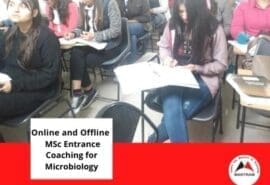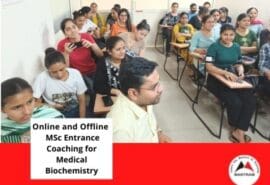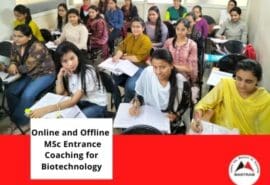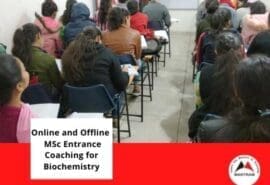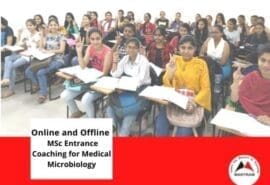
NTA UGC JRF NET Music
NTA UGC JRF NET Music
The National Eligibility Test (NET), also known as UGC NET or NTA-UGC-NET, is conducted by the National Testing Agency (NTA) on behalf of the University Grants Commission (UGC) to determine eligibility for the post of Assistant Professor and Junior Research Fellowship (JRF) in Indian universities and colleges. NTA took over conducting the exam from CBSE in 2018.
The UGC JRF NET Music exam aims to gauge teaching/research aptitude and assess the grasp of concepts across various aspects of Hindustani music, Carnatic Music, Western classical Music, Indian regional folk music, musicology, music perception, sound recording, Music in theatre and films, etc.
Eligibility Criteria
To be eligible for lectureship or JRF through UGC NET Music, the candidate must have a postgraduate degree in Music/Dance/ Drama/Theatre/ Arts with a minimum of 55% marks (50% for SC/ST/OBC/PWD). Junior Research Fellowship is awarded based on merit and category.
For CSIR NET Life Science Exam Preparation Coaching, contact us at Mantram Study Group, SCO No. 80-81, First Floor, Sector 15-D, Chandigarh (Near Gate No. 2, Panjab University Chandigarh – Contact – 9779797575/ 9463049859)
The NTA UGC NET Music paper comprises:
Paper I: Teaching & Research Aptitude (Common for all subjects)
Paper II: Music Subject Paper
Paper I: 100 marks
- 50 MCQ questions on teaching aptitude, reasoning, diversity, communication, etc.
- No negative marking
- One mark for each correct answer
Paper II: 200 marks
- 100 MCQ questions covering diverse music domains
- Negative marking: 1 mark deducted for every wrong answer
The duration is 1 hour for Paper I and 2 hours for Paper II.
Syllabus for UGC JRF NET Music
The music subject paper encompasses the following major areas:
Hindustani Music → Major gharanas, composers & musicians → Understanding of ragas, talas → Vocal and instrumental styles → Evolution of forms like dhrupad, khyal, Tarana, etc.
Carnatic Music
→ Composers like Purandaradasa and Thyagaraja → Concepts of raga, tana, tala, Pallavi, krithi, etc. → Instruments & famous instrumentalists → Vocal traditions
Western Classical Music → Popes of Baroque, Classical, and Romantic eras → Forms such as the symphony, opera, concerto, fugue
→ Acoustic properties of Music → 20th-century trends—jazz, rock, film scores, musical theatre
Indian Folk and Regional Music → Diversity across regions → Language and dialect-based music → Impact of social context on musical expressions → Primary research on rural musical art forms
Perception of Music → Psychological & physiological perspectives → Indian perspective found in ancient shastras
Cognitive organization of musical sound
Musicology and Musical Heritage → Natyashastra & it's core ideas → Contribution of scholars like Vatsyayana, Matanga, Sharangdeva
→ Interdisciplinary nature of musicology → Methods of transmission from guru to shishya parampara → Preservation of musical traditions through cultural institutions
Applied Music → Music theory principles → Notation methods such as staff notation, Sargam
→ Music in theatre & films → Role of Music in mass communication → Recent technologies like audio-visual production, sound recording, digital interfaces
Reference Books
Some handy reference books for cracking UGC NET Music are:
→ C.R. Dayananda Rao – Understanding Indian Music
→ Alain Danielou – Northern Indian Music
→ Meera Gupta et al. – NTA UGC CBSE NET JRF
→ Jayashree Thatte Bhat – Music Theory
→ Subhasis Chattopadhyay – UGC NTA NET JRF
→ Uma Vasudev & C.R. Dayananda Rao – Applied Musicology
→ Sumangala Sharma - Concept of Tala in Indian Music
Online resources like notes, question banks, and mock tests are valuable study tools.
How to Prepare for NTA UGC NET Music
A strategic approach is critical for effectively preparing for the NTA UGC JRF NET exam in Music:
→ Thoroughly analyze the detailed syllabus and past question papers
→ Make chapter-wise notes from reference books for quick revision
→ Subscribe to online portals like Testbook and Grade up for mock tests
→ Create mind maps/mnemonics for remembering ragas, talas, and concepts easily
→ Revise definitions & important facts using flashcards
→ Attempt mock tests in simulated exam conditions
→ Work on speed and accuracy
→ Identify knowledge gaps and improve weaker areas
→ Take breaks to prevent burnout
Conclusion
In summary, the NTA UGC NET is a prestigious exam that opens lectureship and research opportunities for Music postgraduates in national universities and institutions.
Through rigorous preparation over six months to 1 year following the latest syllabus guidelines, reference books, online material, and test series, aspirants can successfully crack this exam and have a rewarding career promoting the extraordinary art form of Indian Music.
FAQ
What is the qualification for UGC NET music?
Eligibility Conditions for UGC NET Music
To appear for UGC NET music, an aspirant must fulfill the following qualification criteria:
Qualifying Exam: Master’s degree in Music or equivalent degree with minimum 55% marks (50% for reserved categories like SC/ST/OBC/PWD as per UGC norms).
Note that the post-graduation degree must be approved by UGC and statutory bodies or awarded by Indian universities with recognition under UGC. Those awaiting their final year exam results can also apply.
Music Specialization: Though the eligibility degree can be a Master's in broader subjects like Dance/Drama/Theatre/Arts, the candidate's core specialization during the P.G. program should be in Music to opt for the Music subject paper. Applicants with purely Dance or Drama specialization at the P.G. level are not eligible.
No Age Limit: No upper age limit has been prescribed for applying for JRF or Assistant Professorship. However, JRF-awarded candidates have a validity of 5 years for Professorship.
Ineligibility Conditions
The following sets of candidates are not yet eligible to appear for the UGC NET music exam despite having a P.G. degree:
Qualifications like the P.G. Diploma in Music and part-time or distance learning programs are not accepted as qualifying degrees.
Candidates are awaiting the final semester/year examination results of their master's degree during the time of application.
Candidates who obtained a P.G. degree qualification before 19th September 1991 (implementation year of UGC Regulations) are not eligible unless awarded by an Indian University/ Institution recognized under UGC.
UGC accepts only a regular master's degree for the eligibility criteria. Provisional P.G. qualifications need to be increased.
Which Music Discipline Specializations Qualify?
Though there is a common perception that Indian Classical Music degrees like M.A. in Hindustani Music or Carnatic Music qualify automatically for UGC NET music, this is not entirely true.
The information bulletin clearly states that P.G. degrees across music disciplines - Western, Eastern, and Indian regional/folk music- are all valid eligibility specializations as long as UGC/University bodies approve them.
Even degrees like Masters in Applied Music, Music Aesthetics, or Music Technology where substantial music credits have been earned qualify.
What is UGC in Music?
University Grants Commission (UGC) is a statutory body set up by the Government of India in 1956 under the UGC Act.
It is tasked with regulating and coordinating the standards of university education in India as well as disbursing funds to eligible universities and colleges. UGC plays a crucial role in music education across universities in the country in multiple ways.
UGC's Role in Formal Music Education
UGC defines the regulatory frameworks and policies covering all higher education disciplines, including performing arts like Music.
It grants academic approvals for universities and colleges offering music-oriented programs at undergraduate, postgraduate, and doctoral levels.
Music subjects offered by UGC-recognized institutions include:
- A. / BB.A.. in Hindustani / Carnatic Vocal
- A. / M.Mus. in Musicology
- A. in M.A.d Music
- Phil / Ph.D in Ethnomusicology
The UGC also actively supports the Centers for Excellence in Music across universities by funding infrastructure, libraries, student scholarships, etc., to strengthen music education and research.
For instance, the Centre for Excellence in Sitar at the Department of Instrumental Music at Delhi University was established with UGC financial assistance in 1987. Many other universities, including Pondicherry University and Visva Bharati, have UGC-funded centers that offer advanced music learning.
Setting Standards via Model Curriculums
UGC plays a defining role by developing model curriculums, syllabi structures, and course frameworks that universities refer to while designing their respective music degree programs.
These model curriculums balance practical music training with theoretical knowledge across areas like musicology, ethnomusicology, music acoustics, sound engineering, etc.
UGC's model curriculums standardize essential prerequisites and uniformity in music education across India's HEIs while allowing flexibility to incorporate regional diversity.
Central and state universities customize UGC curriculums based on the strengths of local art traditions and emerging music trends.
NET/SET for Determining Lectureship Eligibility
The National and State Eligibility Tests conducted by UGC since 1989 aim to determine eligibility for Assistant Professorship and other academic positions in universities/colleges, including music discipline.
Clearing UGC's NET exam enables qualified music professionals to apply for faculty positions nationwide. UGC insists any P.G. holding a music subject take this eligibility test for recruitment as an Assistant Professor in any university music department.
Similarly, the State Eligibility Test is held at the state level for determining lectureship eligibility in affiliated colleges. UGC policy mandates clearing SET as the minimum qualification criterion for college music faculty appointment.
Thus, UGC-administered eligibility tests are pivotal for formal teaching jobs in music education.
Promoting Indian Music, Heritage and Culture
Living traditions of Indian art music have been preserved, propagated, and taken forward over centuries by the 'Guru-Shishya Parampara.' Knowledge transmission occurs through practitioners co-habiting in intimacy over long periods.
To retain the sensitive oral tradition, UGC, as the apex body, protects the rights of traditional music teachers and supports publications that comprehensively document various pedagogical styles, raga frameworks, and rhythm cycles of different Gharanas. Hence, the intangible heritage survives modern times.
UGC's schemes, like Guru Shishya Parampara, enable senior music masters to train students under personalized tutelage.
Renowned vocalists and instrumentalists are recognized as Music Gurus and are paid stipends to teach small groups over a few years. Such measures give Fillip to India's priceless guru-shishya culture.
Inter-University Cultural Festivals
UGC sponsors zonal cultural festivals hosted by different universities to showcase young talents in Music, dance, and fine arts. Eminent artists are invited as judges.
Through competitions across classical, light, and folk music genres, these UGC-funded youth festivals at the cluster level promote upcoming musicians while scouting for extraordinary performers for further grooming.
Besides encouraging a competitive spirit, such culturally vibrant platforms enable interaction between students pursuing music degrees across neighboring states and institutions to exchange knowledge.
Career Support for Young Artists
To help exceptionally gifted music students sustain their sadhana despite financial hardships, UGC announces Junior Research Fellowships in Music worth ₹31,000 per month plus HRA for five years of advanced training leading to SRF. UGC also supports independent music research by scholars through various other fellowship programs.
By setting eligibility criteria for university recruitment, formulating regulatory guidelines, preserving art traditions, and incentivizing young talent, UGC shoulders strategic responsibilities vital for streamlining music education while upholding our unique cultural legacy at the national level.
UGC's Music Research Journals
To integrate music research activities across India's universities and give fresh scholarly insights into interdisciplinary dimensions, UGC-listed journals aim to provide formal channels for music academicians to publish evidence-based studies.
Some UGC-approved and indexed music research journals are:
- Musicological Society of India Journal
- Journal of the Indian Musicological Society
- Journal of the Sangeet Natak Akademi
- International Journal of Music Science, Technology and Art
- Journal of Arts and Humanities
By approving quality publications focused on Music, UGC boosts research motivation levels in our HEIs for filling gaps in music literature through path-breaking investigations, music theory models, experimental designs, case studies, and fieldwork.
Thanks for visiting our website Mantram Study Group
You may also join Mantram for NORCET Coaching
CHECK OUR OTHER LINKS: -
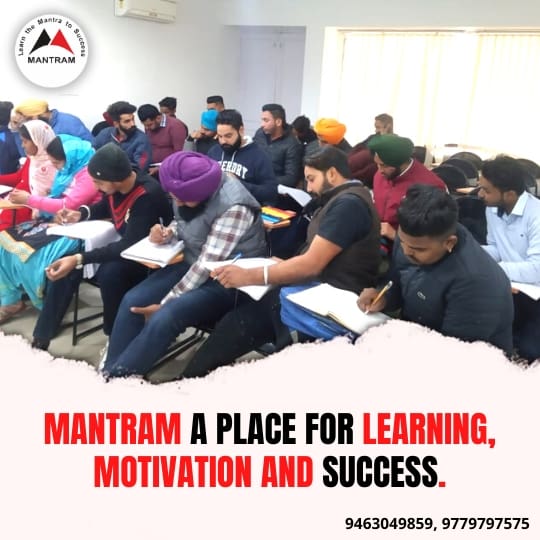
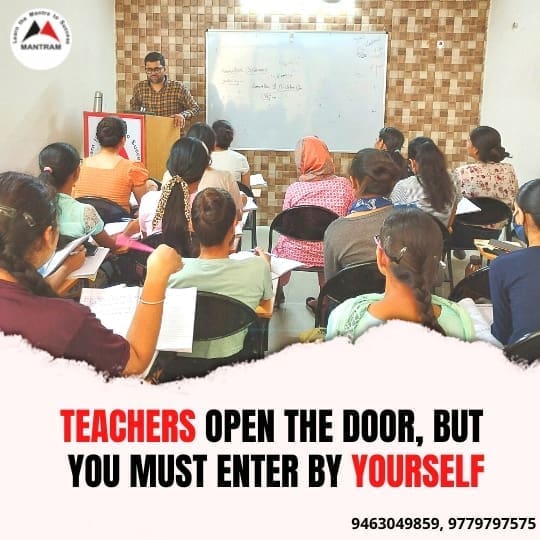
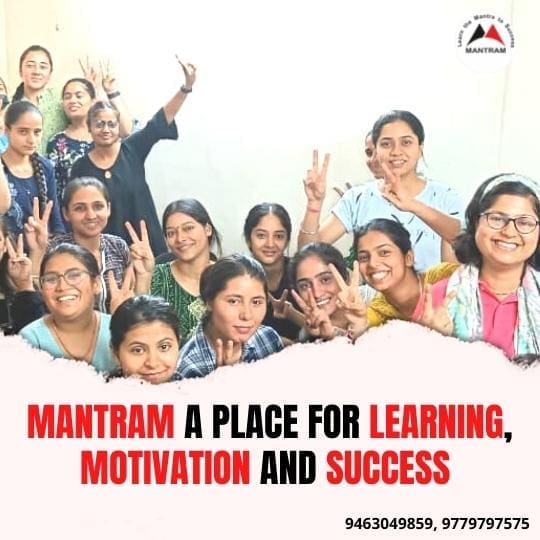
Testimonials...
Why Join Mantram NTA UGC JRF NET Music?





